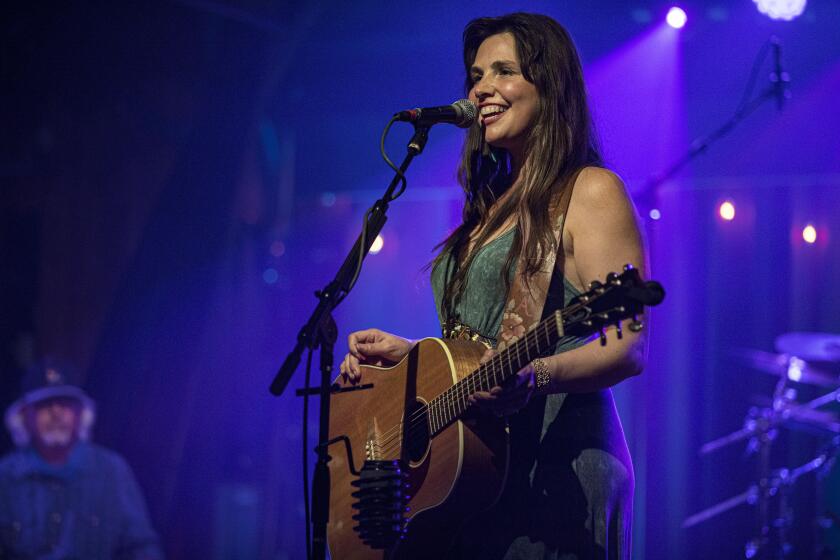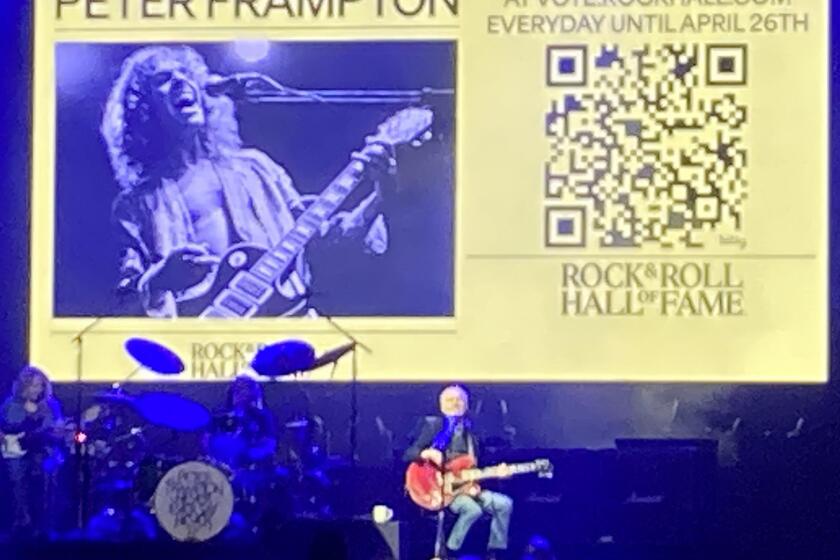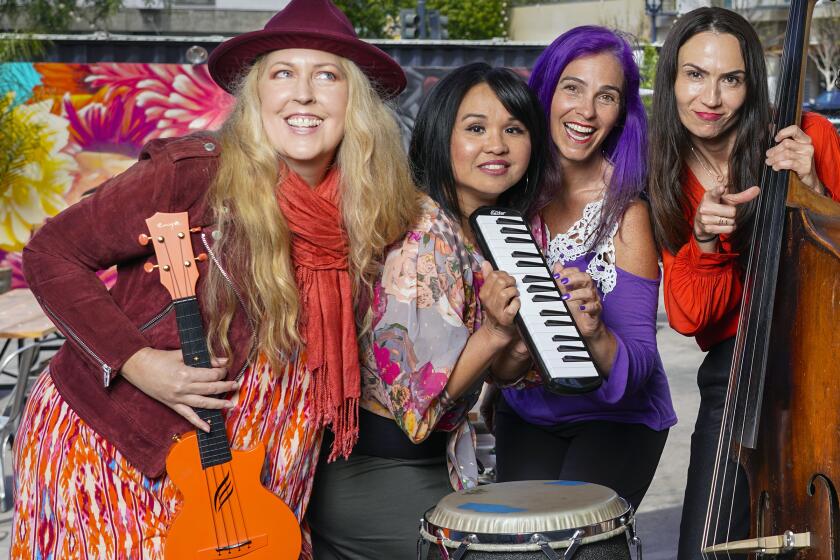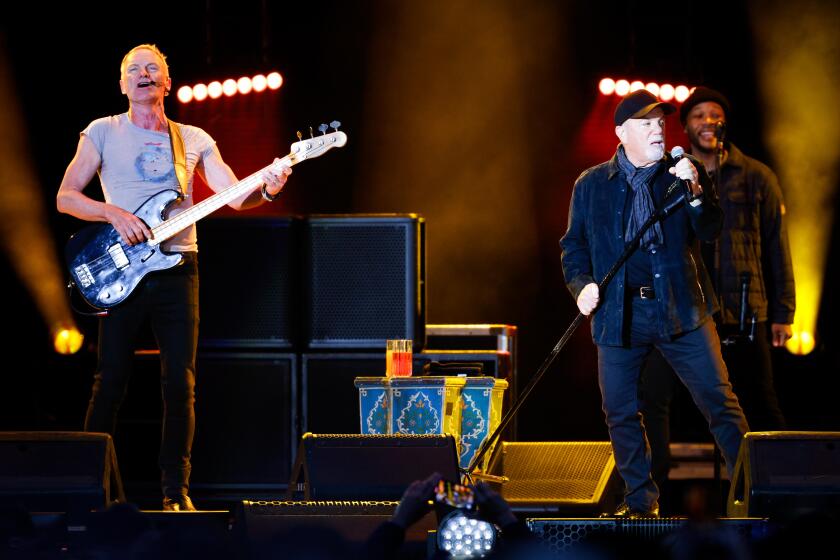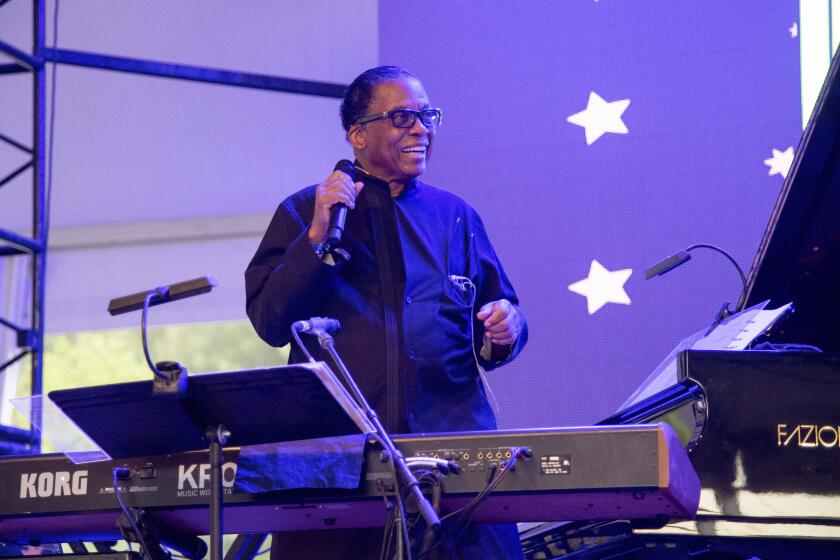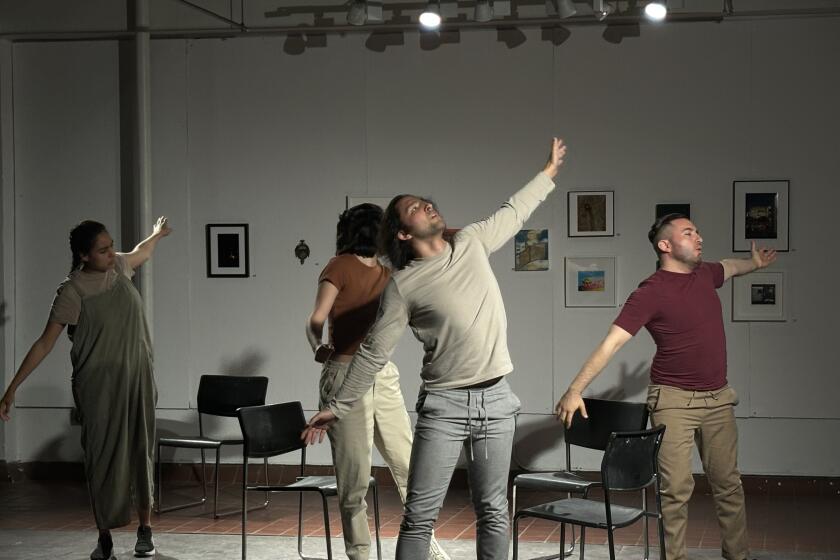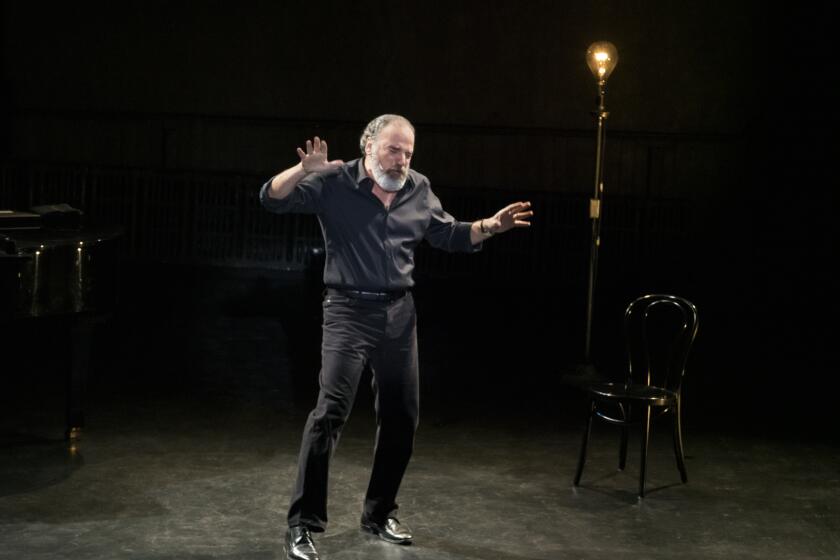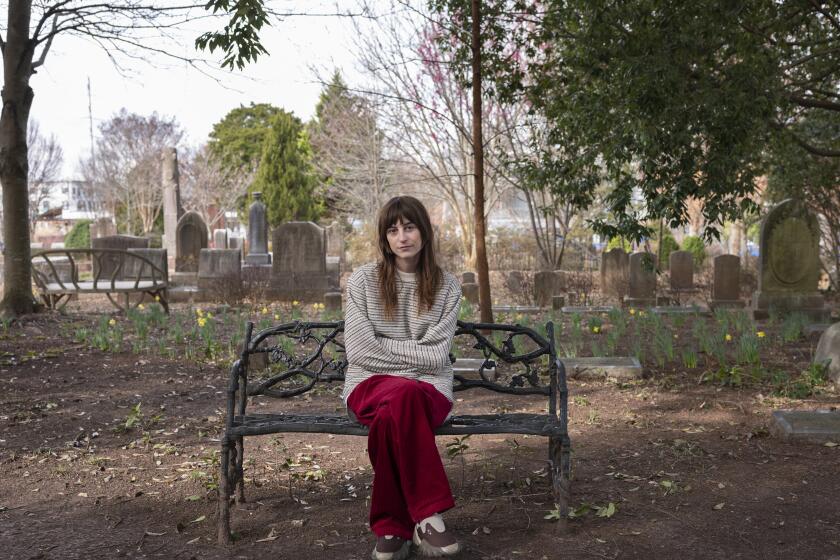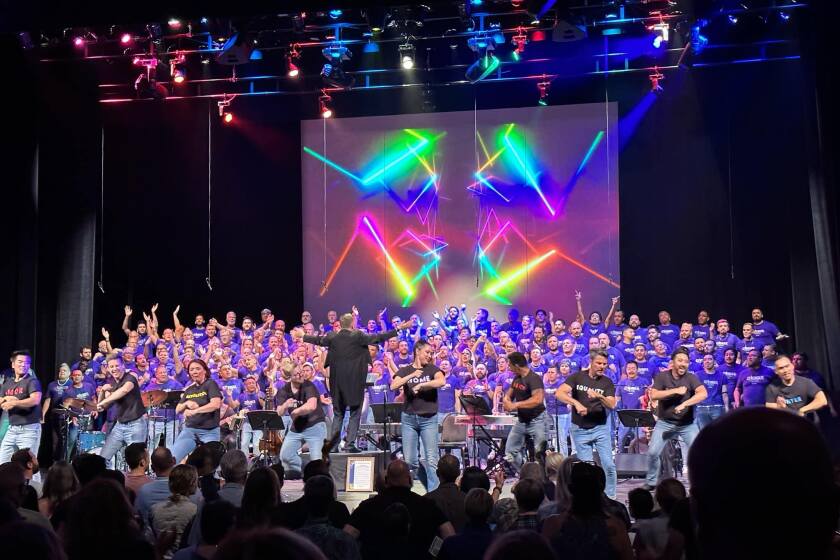Borders-leaping composer Gabriela Lena Frank champions change: ‘I’m a woman of color who is partially deaf’
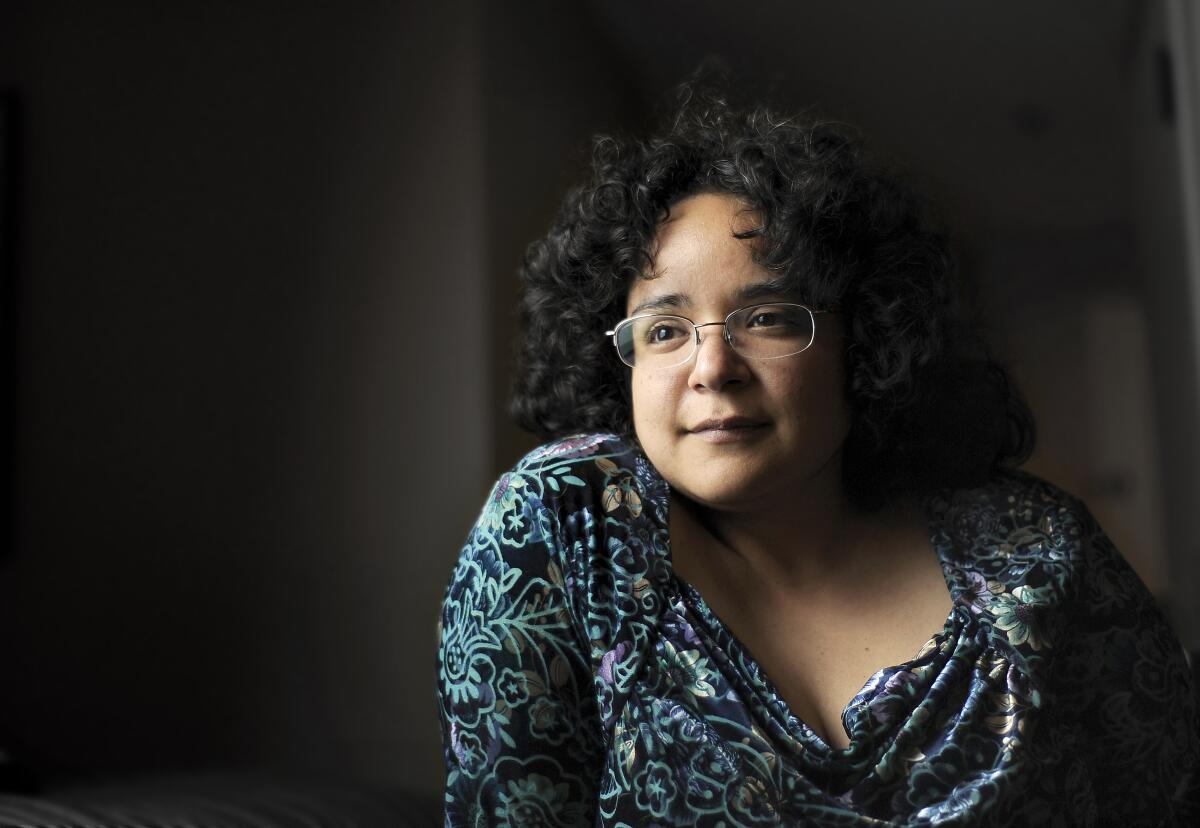
This SummerFest-bound multicultural music maverick, a Latin Grammy Award and Guggenheim Fellowship recipient, has been the Philadelphia Orchestra’s Composer-in-Residence since 2019
Acclaimed widely for her striking fusion of contemporary classical and Latin American music styles, Gabriela Lena Frank didn’t know of any other composers or piano soloists who looked like her before she launched her career in the 1990s. That is still the case today.
“I am a disabled woman of color who is middle-aged,” said Frank, 48, a Berkeley native of Peruvian, Chinese and Lithuanian heritage. She will be featured over three days at the 2021 edition of La Jolla Music Society’s SummerFest, which opens Friday and runs through Aug. 20.
“There should be many more middle-aged women of color writing music. The last few years have given me the opportunity to hang in there and not let the many doors that were closed to me be daunting — and to see the many more doors that are now open.”
Being daunted has never been an option for Frank, the winner of a Latin Grammy Award and a Guggenheim Fellowship, both in 2009.
Born with high-moderate/near-profound hearing loss, she has worn hearing aids since she was 5. After being struck with Graves’ disease in her 20s, she lost most of the sight in her right eye. She composes almost all of her music in her head, not on a piano.
“In some ways, I hear very well,” said Frank in a wide-ranging 75-minute phone interview from her Mendocino County home in Boonville.
“I have perfect pitch. Whatever gift I was born with for sound and music has helped me navigate my way much better than would have been expected. I attribute that to music and the genes I inherited from the Jewish side of my family, because there are musicians on that side.
“My musical ability also helps me navigate my day-to-day life. The hearing aids I have now work very well with iPhones. But I’m usually exhausted after long phone calls because I concentrate so much on what people are saying.”
An artistic dynamo on stage and off, Frank is deservedly celebrated as one of the most prolific and gifted composers of her generation.
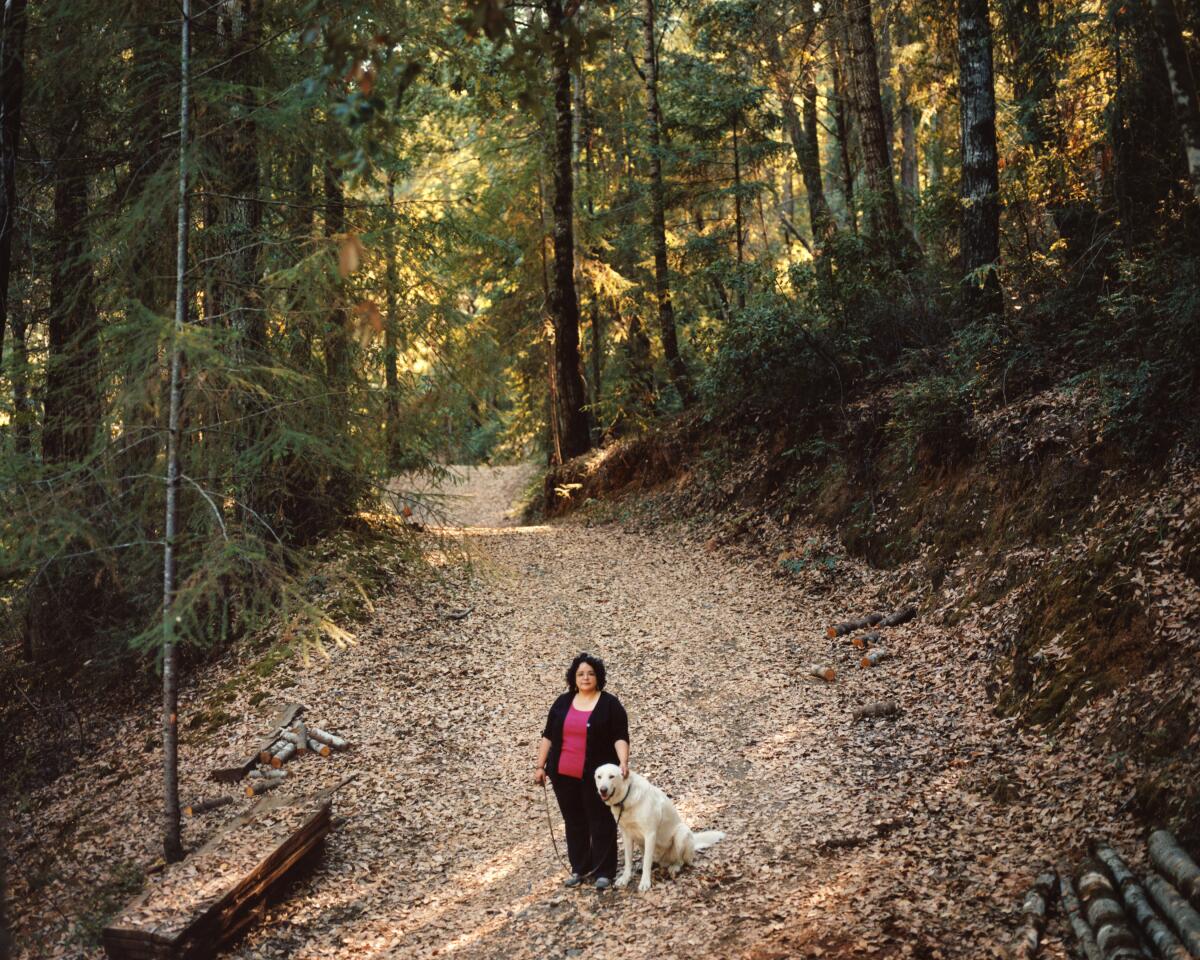
)
Inspired by Bartók and Ginastera
Her richly textured compositions are steeped in tradition, be it Beethoven, Bartók, Andean folk music and the work of Argentinian composer Alberto Ginastera. Like Hungary’s Bartók before him, Ginastera was inspired by the traditional music of his homeland and deftly incorporated it into his own writing.
Frank has used such a template in her compositions since her teen years. She chuckled appreciatively when reminded of Bartók’s observation: “Folk melodies are the embodiment of an artistic perfection of the highest order; in fact, they are models of the way in which a musical idea can be expressed with utmost perfection in terms of brevity of form and simplicity of means.”
“I love most things ‘Bartók-ian.’ I love that quote and am very familiar with it,” Frank said.
“It’s like a call to arms, this goal of using simple means to convey something that is authentic from the people. It takes a great deal of skill to elevate its authenticity, and that was the goal Bartók set up for himself.”
Frank’s multifarious compositions have been performed by orchestras across the nation, including the Boston Symphony, Los Angeles Philharmonic and San Diego Symphony.
Others who have showcased her works range from the Kronos Quartet and the Yo-Yo Ma-led Silk Road Ensemble, which features San Diego-based pipa master Wu Man, to leading Cuban classical guitarist Manuel Barrueco and Mexico’s Cuarteto Latinoamericano.
“I’m a big believer in collaborative relationships with performers,” Frank said. “I have a great career and a great life. But some of these relationships are more transactional.
“In those cases, I am commissioned and write from a distance. I show up five days before the piece is premiered, we work together, the whole thing is done and I may or may not have met any of the musicians ahead of time.
“That’s a pretty classic kind of work environment; we’re all professional and can do our jobs. But when we are provided the opportunity be more collaborative, spend time together, break bread and talk during our off hours, the music will benefit greatly and there will be more risks taken.”
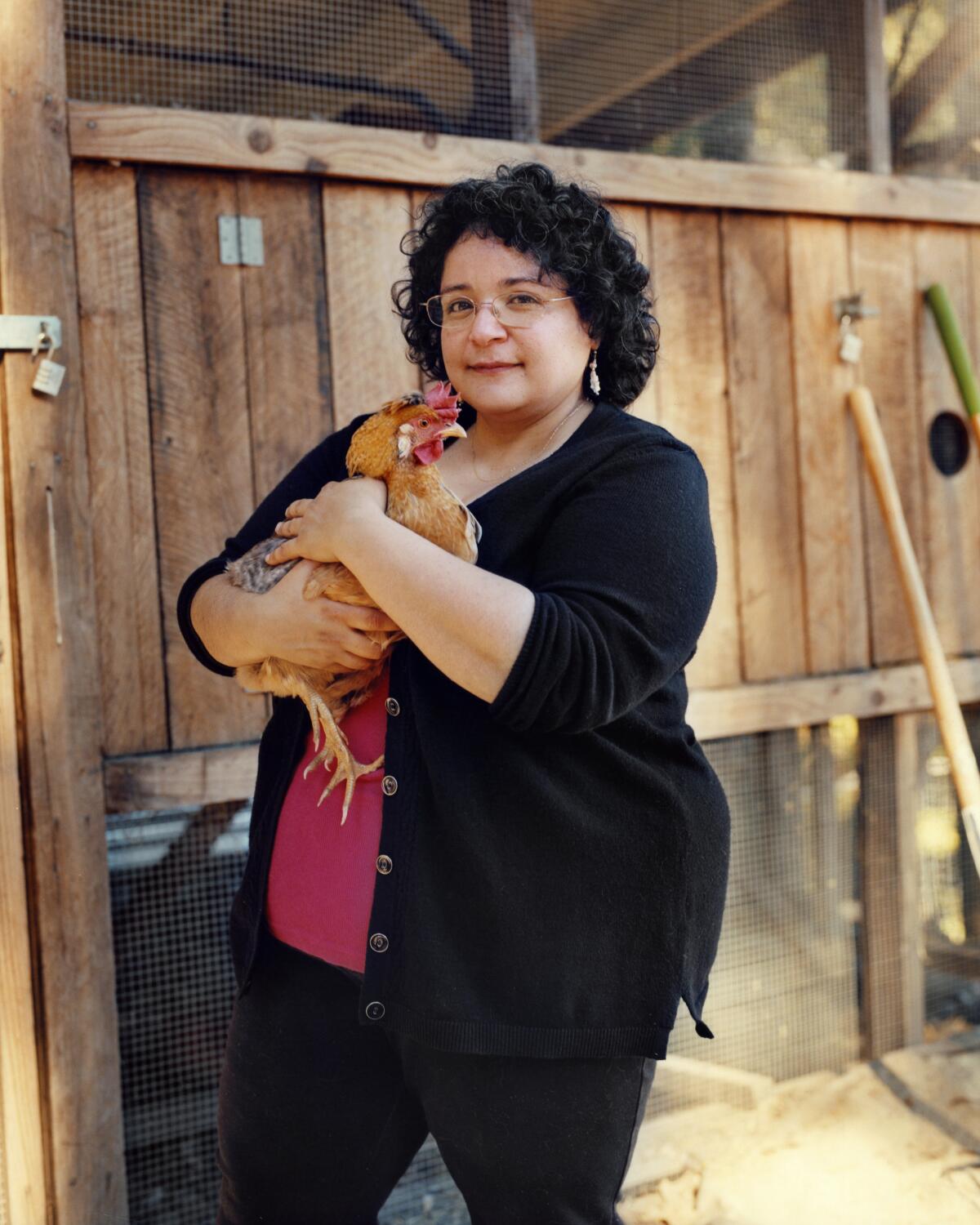
)
‘Inca Dances’
Also an accomplished pianist, Frank has performed around the world. Because of her autoimmune condition and the again surging COVID-19 pandemic, she is still deciding whether her participation next month at SummerFest will be in-person or virtual from her home, two hours north of San Francisco.
“I’m vaccinated, of course, and that gives me real peace of mind,” Frank said. “But with the variants out there, I am being cautious. So, we’re taking it day by day, and I’ve been talking to my doctor. If I do come to La Jolla, it will definitely be by car.”
Either way, she is curating the Aug. 15 and Aug. 17 “Takeover @ The JAI” concerts, with a live discussion of her work scheduled for Aug. 16. Her four featured compositions here will include Milagros, which will be performed by the Calder Quartet, and the Frida Kahlo- and Diego Rivera-inspired El Mundo, a duet for mezzo-soprano Guadalupe Paz and pianist Chelsea de Souza.
The work of seven rising composers, all chosen by Frank, will also be featured at the Aug. 15 and 17 “Takeover @ The Jai” performances, including Anjna Swaminathan, Iman Habibi and Christine Hedden. They are all former students of the nonprofit Gabriela Lena Frank Creative Academy of Music, which opened in 2017.
In spite — and because — of her partial hearing and vision condition, Frank has thrived as a composer.
Simultaneously sophisticated and earthy, vibrant and urbane, her music is soulful and inviting even in its most challenging moments. Whether writing for an orchestra, a chamber group, a string quartet, a solo violinist or a choir, she infuses her work with a winning combination of daring and reverence.
“Inca Dances,” which earned her the 2009 Latin Grammy Award for Best Classical Contemporary Composition, vividly exemplifies her ability to simultaneously look forward and back in her music, to draw from sources close and far, foreign and familiar. That approach is foundational to her work as a composer, performer and teacher.
In 2020, she received a $250,000 Heinz Award for Arts and Humanity. It was given in recognition of her support for emerging composers and, in particular, for her tireless championing of gender, disability and cultural diversity in classical music.
Frank is a walking testament to such diversity — and to the multiculturalism that has long enriched American life and arts. Or, as she playfully told an interviewer in 2012: “I’m a Berkeley gringa, Latino, Peruvian, Chinese, Lithuanian Jew, deaf, short composer!”
Field of opportunity
Frank lives with her husband on a 15-acre farm that is home to chickens, bees and all manner of fruit trees and vegetables.
She laughed when asked if she is ever inspired to write music when she’s doing farm work.
“Yeah, I am,” she said.
“It’s tiring work when I’m chopping down branches or what not. But there’s a sense of accomplishment and well-being, and that always lays the ground for creativity and making something happen. I also get a lot of ideas when I’m cooking. There’s something about putting a meal together that is good for the brain.”
Ideas are constantly flowing from Frank, who started playing piano as a child and began composing as a teenager.
“My older brother and I were frequently the only people of color in our high-school honors courses,” Frank recalled. “So, right away, I saw I would have to own the difference.
“My mother has a very thick accent that never went away, and I love it! There was a real conscious effort on my part to understand what it meant to be an immigrant and to say something in my music that reflected that. That seemed a lot more authentic to me than to try to sound like somebody parroting a solely European (classical) sound.”
Frank’s mother is steeped in Peruvian cultural traditions. Her father is a noted Mark Twain scholar. He met her mother while serving in the Peace Corps in Peru in the 1960s and Frank and her brother grew up in a home filled with music and literature.
“In Berkeley, during the 1970s and 1980s, you could hear a lot of concerts by musicians from Peru, Chile, Ecuador. Sometimes, they were even part-Chinese, like my mother,” Frank said.
“I would hear this music and felt attracted to it. I could picture it in my head. As a little girl, I would come home from concerts and try and replicate what I heard on our spinet and, later, on our upright piano.”
Frank studied music composition at Rice University and earned her doctorate at the University of Michigan.
She credits her professors for encouraging her to embrace her heritage and to study music on her own in Peru. She happily did so on self-funded trips with her mother, who served as an unofficial cultural ambassador as they traveled to remote villages.
“Every one of my composition teachers were White men,” Frank recalled. “The ones that really had an impact on me were marvelous and they could see me. They were powerful role models of what it meant to be a humanitarian.
“They could reach across the aisle and help me become more me, even though they had never been to Peru. I’ve learned, as a middle-aged Latina, that I can become a mentor and role model for young white men. We really have to see people and put ourselves into their shoes.”
Singing her praises
How highly do celebrated composer Gabriela Frank’s fellow musicians think of her? We put that question to two notable artists.
Pipa master Wu Man has performed several pieces Frank wrote especially for her. One of them, 2007’s “Soliloquio Serrano,” was inspired by the pensive Peruvian Andes music style known as harawi.
Pianist Inon Barnatan is the music director of SummerFest. He invited Frank to curate, and perform at, the two “Takeover at the JAI” concerts at this year’s 16-concert edition of SummerFest, which runs Friday through Aug. 20.
Here’s what they had to say about Frank.
Wu Man: “Gabriela has a family heritage that is all mixed in terms of people and culture — there is nothing 100 percent now — and she exemplifies that in the best ways. She is a female American composer, born in Berkeley. Her great-grandfather was Chinese, with the last name Cam. He immigrated to Peru and married a local woman. That woman’s daughter’s daughter is Gabriela’s mother.
“Gabriela is very open-minded and straightforward. She is a very strong woman. She’s a role model for Latin female musicians and composers. She’s also a role model for me.”
Inon Barnatan: “Gabriela is incredible. It’s hard to talk about her because she has so many facets. She’s a composer, a musician, an educator, a cultural activist. To talk about any of these alone does not give credit to how versatile and wonderful she is, because she does all of these things so unusually well.
“In 2017, The Washington Post named her one of the 35 most important women composers of all time. The more I learn about her, the more fascinated I become. In addition to curating and performing at SummerFest, I want her to talk about her vision for American music and what it means for diversity and opportunity, together with artistry and quality. Because she’s been doing it for years, not as lip service, but as her mission.”
The show will go on
Like other arts organizations and commercial events producers alike, SummerFest will adhere to whatever official COVID-19 health protocols are in place.
Concerts will take place in the 513-seat Baker-Baum Concert Hall and in the adjacent 116-seat JAI, both of which opened in 2019 in the $82 million Conrad Prebys Performing Arts Center.
Because of the pandemic-fueled shutdown of live events, last year’s SummerFest was trimmed from 18 live concerts to six livestreamed performances. No audience was permitted to attend in person.
Backstage health protocols for this year’s edition of SummerFest are now being completed, in consultation with a San Diego-based epidemiologist. All musicians who perform have been asked to provide proof of vaccination in advance.
And what of the audience for the concerts, which will also be livestreamed?
“In general, we are simply following the state guidelines which allow for a concert hall of our size to operate without necessarily collecting proof of vaccination or proof of negative tests,” said La Jolla Music Society President/CEO Todd Schultz.
“People who are vaccinated are not required to wear a mask and the state allows for self-attestation. We actually have been collecting, on a largely voluntary basis, proof of vaccination and proof of negative tests from our SummerFest ticket-buyers. ...
“Although we announced this year’s SummerFest eight weeks later than usual, our subscriptions have already exceeded the final subscription count we had in 2019. We had a sold-out concert in June by Hot Sardines in our Baker-Baum Concert Hall, and people were very happy to be there. So, I fully anticipate all the SummerFest performances to come off as planned and audiences to attend. “
SummerFest 2021
When: Friday through Aug. 20. All concerts are at 7:30 p.m. The full schedule is available on the La Jolla Music Society’s website.
Where: The Baker-Baum Concert Hall and The JAI at The Conrad Prebys Performing Arts Center, 7600 Fay Ave., La Jolla
Tickets: $45-$95 per concert
Phone: (858) 459-3728
Online: ljms.org
Get U-T Arts & Culture on Thursdays
A San Diego insider’s look at what talented artists are bringing to the stage, screen, galleries and more.
You may occasionally receive promotional content from the San Diego Union-Tribune.

